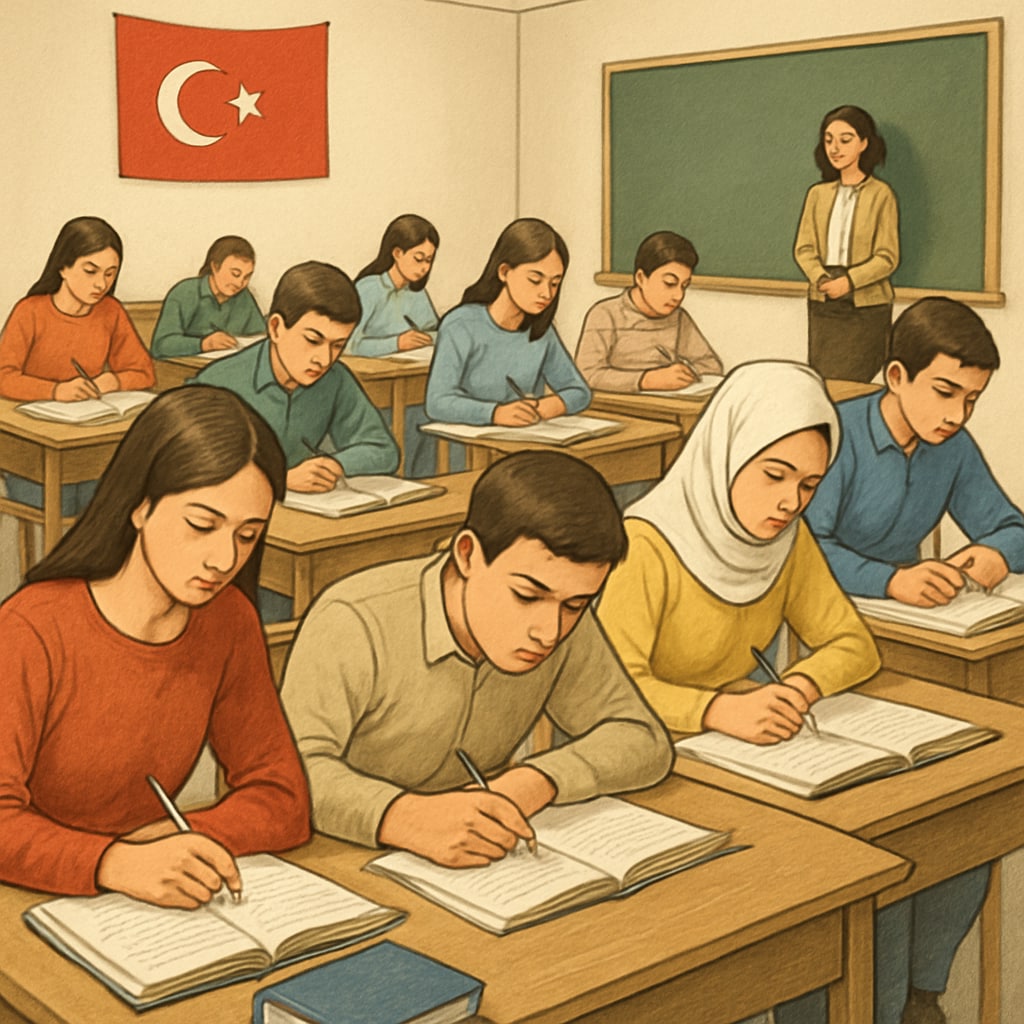Turkey’s education system is heavily reliant on a centralized exam framework, creating intense exam pressure for students. By contrast, the UK’s A Levels model emphasizes student choice and subject depth, offering a starkly different approach. This article examines the fundamental differences between these systems, highlights the limitations of Turkey’s exam-centric approach, and explores how adopting elements of the A Levels model could drive meaningful education reform.
The Challenges of Turkey’s Exam-Driven Education System
Turkey’s education system places a disproportionate focus on high-stakes national exams, such as the LGS (High School Entrance Exam) and YKS (University Entrance Exam). These exams are often viewed as the sole determinant of a student’s academic future, leading to immense pressure on students, parents, and schools. While this system ensures standardization and fairness to some extent, its drawbacks are significant.
Firstly, overemphasis on rote memorization leaves little room for critical thinking or creativity. Students are trained to excel in exams rather than develop skills that are valuable in real-life contexts. Secondly, the system limits flexibility, as students are funneled into predetermined academic or vocational tracks based on exam performance, often without considering their interests or strengths. Finally, the stress induced by these exams has been linked to mental health issues among students, further exacerbating the system’s flaws.

How the UK’s A Levels Model Encourages Holistic Development
The UK’s A Levels system provides a contrasting approach to secondary education. Students typically select three to four subjects to specialize in, allowing for a deeper exploration of their areas of interest. This flexibility empowers students to shape their academic paths based on their strengths and career aspirations.
One of the key strengths of the A Levels model is its focus on depth over breadth. Unlike Turkey’s broad, exam-heavy curriculum, A Levels enable students to engage with subjects in a detailed and analytical manner. Furthermore, assessment methods include coursework, practical evaluations, and written exams, promoting a more balanced and comprehensive evaluation of student abilities. This system not only encourages academic excellence but also fosters critical thinking, problem-solving, and independent research skills.
Additionally, the A Levels framework aligns closely with university admission processes. Universities consider a range of factors, including predicted grades, personal statements, and teacher recommendations, rather than relying solely on exam scores. This holistic approach reduces undue pressure on students and provides a fairer assessment of their capabilities.

A Path Forward: Lessons from the UK for Turkey’s Education Reform
To address the limitations of its current system, Turkey could draw valuable lessons from the UK’s A Levels model. A successful reform strategy would involve the following key elements:
- Introducing Flexibility: Allowing students to choose subjects based on their interests and career goals could help them stay motivated and engaged.
- Reducing Exam Dependency: Incorporating alternative assessment methods, such as project work and coursework, can provide a more accurate measure of student potential.
- Fostering Critical Skills: Shifting the focus from rote memorization to critical thinking, creativity, and problem-solving is essential for preparing students for the modern workforce.
- Providing Holistic Admissions: Revising university admission processes to include multiple criteria, such as extracurricular achievements and teacher recommendations, can create a more balanced evaluation system.
Implementing such changes would require systemic adjustments and a cultural shift in how education is perceived. Policymakers, educators, and parents must collaborate to prioritize long-term student development over short-term exam results.
Conclusion: Unlocking Educational Potential
Turkey’s exam-centric education system, while standardized, often stifles creativity and imposes undue pressure on students. By adopting elements of the UK’s A Levels model, such as subject flexibility, diverse assessment methods, and holistic admissions, Turkey can create an education system that nurtures both academic and personal growth. As the country looks to reform its education system, the ultimate goal should be to unlock the full potential of its students, preparing them not just for exams but for life beyond the classroom.
Readability guidance: This article uses concise paragraphs, clear transitions, and a mix of explanatory text and actionable recommendations to enhance readability. Lists and examples are included to clarify key points, ensuring accessibility for a broad audience.


